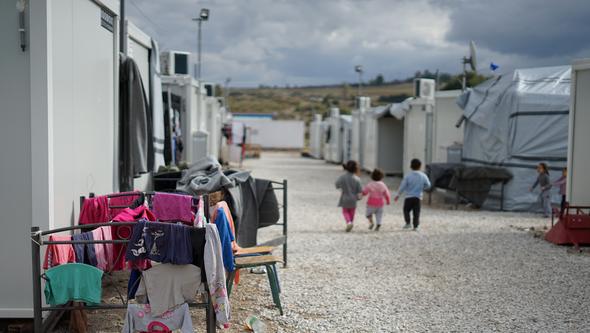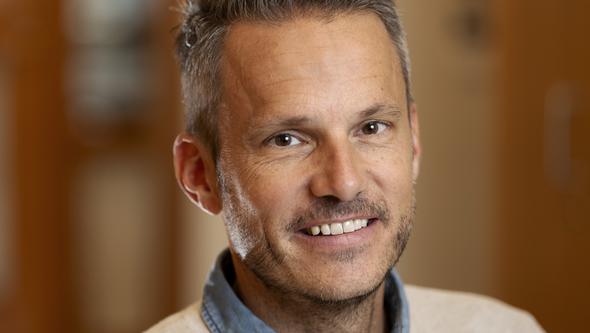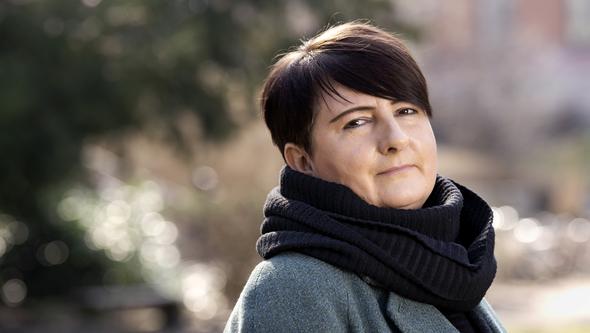
- Home
- News and events
- Find news
- Looking for answers about migration at OMICS 2023
Looking for answers about migration at OMICS 2023
Despite the fact that more people than ever before are displaced around the world, there is still a lack of knowledge about migration. On November 22–24, researchers from near and far will meet once again for the OMICS Conference to present new findings about immigration and integration over the course of three intensive days in Gothenburg. The hope is to spread information and facts about one of the most critical issues of our time.
Conflicts, natural disasters and economic insecurity. These are some of the factors that result in an increasing number of people being forced to leave their homes and seek refuge elsewhere.

"Migration is in our DNA"
The number of refugees exceeded 100 million for the first time at the end of 2022, according to a report by the UN refugee agency UNHCR. A total of 108.4 million people were then either refugees, asylum seekers or so-called internal refugees, which is being a refugee in one's home country.
UNHCR also points to a clear trend where more people are being forced to leave their homes due to natural disasters. 32.6 million of people who migrate are those that are affected by floods, earthquakes, droughts or storms.
At the same time, new threats are intensifying, increasing the risk of people being forced to flee. The continuing conflict in the Democratic Republic of Congo and Sudan, widespread violence in Myanmar, continued insecurity and drought in Somalia, the war in Ukraine and now also a flare-up of the conflict in Israel-Palestine.
The fact that we humans have migrated in different ways throughout the ages is part of humanity's DNA. That is according to Andreas Diedrich, Professor of Management and Organization at the School of Business, Economics and Law.
"The difference is that today we have greater opportunities than before to manage and organize these movements of people in a sustainable and humane way."
As the number of refugees increases, so does the need to exchange knowledge with researchers around the world who can contribute with their experience of how other countries organize the reception of migrants, integration projects and the opportunity for new arrivals to enter the workforce.
OMICS 22-24 November
On the 22–24 November, it will once again be time for the Organizing Migration and Integration in Contemporary Societies (OMICS) Conference. In 2019, OMICS gathered around 200 researchers from different parts of the world, and the organizers expect a good turnout this year as well.

"OMICS 2023 will bring together researchers from Taiwan, Canada, Ghana and Austria, among other countries. What makes this conference unique in Sweden is that we have an interdisciplinary basis. It is important because organizing migration and integration is such a complex issue. When researchers can exchange knowledge from, for example, law, sociology, health sciences and pedagogy, we can get new information that can be disseminated," says Andreas Diedrich.
OMICS 2023 is primarily aimed at researchers, but Andreas Diedrich thinks it is important that many people who work with migration issues or who are themselves new arrivals in Sweden or former migrants participate in the conference.
"We want to promote a lively discourse. These questions are very much for everyone, and it is really important to get the research out into the real world in order for it to influence society and policymakers."
Andreas Diedrich also believes that this type of research is enriched by the fact that you get insights from employees within municipalities and various public bodies, but also company managers and others who are active in the business world, because many questions about integration impact working life. Something with which Andrea Spehar agrees. She is Associate Professor in Political Science and Director of the Centre on Global Migration, which together with the School of Business, Economics and Law is organizing OMICS 2023.
"At OMICS 2023, the focus is on the organization within the labour market, and then, of course, we need stakeholders from the labour market who can contribute with their experience. The organization of the labour market is crucial for people to be able to integrate into a new society and for the migration that takes place around the world to be sustainable in the long term."
The organization of the labour market is crucial for people to be able to integrate into a new society and for the migration that takes place around the world to be sustainable in the long term.

Although a lot of focus in our part of the world is on people making it to Europe, it is mainly outside the West that we see the major migration flows. Andrea Spehar therefore sees it as very positive that many researchers at this year's OMICS come from countries far beyond the EU's borders.
"In this way, we can share their knowledge about how different states organize and regulate migration flows, and how the labour market is adapted to handle this. Something that is a common problem is the polarization that occurs if new arrivals end up on the margins of society. It is something that we see all around the world," she says.
The international attendance is one of the strengths of OMICS 2023, Andreas Diedrich argues:
"We are very happy that so many non-European researchers are coming to OMICS 2023. For example, more studies on migration have been initiated in countries such as Kenya and Bangladesh. And we can learn a lot from the experience of others, not least now when we are starting to see how climate change is creating new challenges and refugee flows."
This article was originally published in the GU Journal.
Text by Agnes Faxén
Information on and registration for OMICS 2023: https://www.gu.se/en/school-business-economics-law/gri/welcome-to-omics-2023.